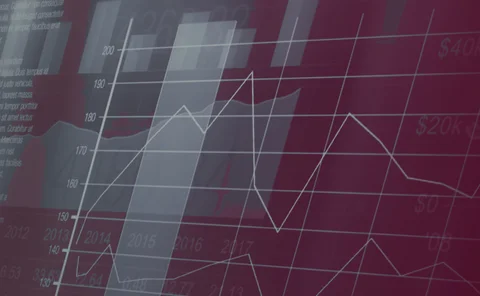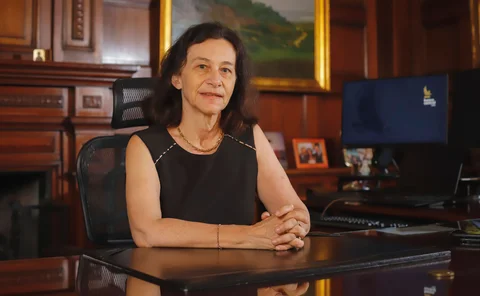Economics
Sarb slows rate rises as South African economy falters
Blackouts may cost up to “two percentage points” of growth this year, central bank says
Argentina and Brazil to begin studying common currency
Minister says countries are taking “first step” in project
Cook suggests US may need to change inflation models
Fed governor believes inflation on path to 2% but tight labour market remains upside risk
Book notes: The illusion of control, by Jon Danielsson
Jon Danielsson’s book makes a compelling case for a serious rethink on financial crises and risk management
2022: The year in review
The invasion of Ukraine left central banks facing yet another exceptional set of challenges. Central Banking looks back at the stories that made the biggest impact this year
Economics Benchmarks 2022 charts
Take a deep dive into the Economics Benchmarks charts, which have just been released for 2022
Economics Benchmarks 2022 – executive summary
Key findings of the 2022 report, including model choices, governance structures and data use
Economics Benchmarks 2022 report – evolving models
Central banks continued to develop their modelling frameworks in 2022, as some longer-term trends in governance structures and research agendas emerged from the data
China needs dollar reserves to bolster renminbi – Eichengreen
Authorities must reassure global markets to make renminbi reserve currency, paper argues
ECB paper examines effects of real rates on banks’ fragility
Level of real interest rates determines whether price or scale effects predominates, researchers find
Proportionality in bank regulation: striking the right balance
The ‘final’ Basel III framework contains elements designed to make the rules fairer while reducing regulatory arbitrage. This means careful analysis is required when making any proportionality adjustments in the EU single rule book, writes Maurizio…
Book notes: A monetary and fiscal history of the United States, 1961–2021, by Alan Blinder
The book’s breakthrough is its infusion of the history of fiscal policy into a theoretical framework traditionally focused on monetary instruments. It is a splendid and thrilling read
Housing plays growing role in transmitting ECB policy, paper finds
Labour earnings still most important means of transmission, researchers say
Armenia’s Galstyan calls for a new framework to tackle uncertainty and nonlinearities
Central Bank of Armenia governor says central banks can start to regain credibility by admitting their mistakes. This could include employing a risk-management approach to monetary policy aimed at avoiding nonlinear ‘dark corners’ and placing much less…
Austan Goolsbee will be next Chicago Fed president
Former Obama adviser will succeed Evans and become voting FOMC member in 2023
Chile’s Costa on tackling inflation, forex interventions and nowcasting
The Central Bank of Chile governor speaks about stubbornly high prices, Fed policy spillovers, reserve buffers, retail CBDC and the need to address unconscious bias
ECB paper presents new corporate default prediction method
Authors say their “distance to insolvency” measure outperforms other forecasting methods
Das outlines RBI’s post-Covid research reforms
Central bank has adopted “full information” system to capture economic dynamics
Carstens wins major Spanish economics prize
King of Spain award praises BIS president’s work in Mexico and globally
Climate change may have serious effects on natural rate – ECB paper
Monetary policy may need more flexibility to deal with climate and green transition, researchers say
Last-minute moves shake up IDB race
Mexico replaces candidate, Argentina joins race
Book notes: Yellen, by Jon Hilsenrath
This book offers new insights into the tough decisions and tremendous efforts Yellen has made as a pre-eminent economic policy-maker
ERM’s 1992 crisis offers lessons for today, academics say
Barry Eichengreen, Maurice Obstfeld and Richard Portes discussed “accident waiting to happen”
Christopher Sims on modelling the inflation surge
Unprecedented series of shocks creates major challenges for central bank forecasters, the Nobel Prize-winning economist tells Daniel Hinge





















